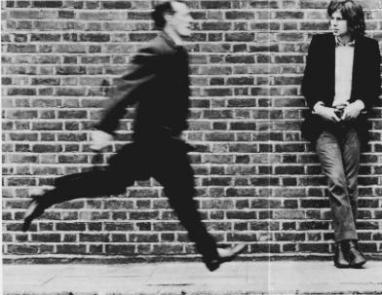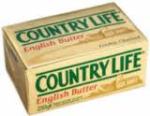Back whenCome On Die Youngcame out, there was a big thing in the NME about how Mogwai claimed that they were punk rock. The band even called one of the tracks on the album “Punk Rock” and used a sample of Iggy Pop talking about what punk is/was over the top of it. Ironically, Iggy Pop is now the spokesperson for an insurance company and thus kind of undermines the original point being made, but I will continue anyway. Their point was that punk was always about attitude and not music, therefore they are the most punk rock band around despite not playing punk at all. I think there’s a fair point there. There was an element of punk in the acid house scene, in the grunge movement in America, in plenty of metal bands and so on. The middle finger that Mogwai were raising to the dominant culture at the time (the fucking awful Britpop scene) was one of true rebellion. Why not play a 20 minute instrumental of white noise? Why not make most of your music instrumental? Why not play incredibly quietly or incredibly loud regardless of what your audience wants to hear? There was a wonderful contempt to it all that hadn’t been around for a while.
Picture life in 90s Britain. It’s hard because there’s really nothing to say. It’s a true lost generation here because it’s an easy period to forget when you’re thinking about culture. In Britain, everything turned into one continual backslap: we had New British Artists who spent their time writing names of people who’d poo-fingered them in a Shoreditch public loo on the back of a bus ticket. We had a bowel opening of indie bands who I now believe were “alright at the time” because we had nothing else, all of whom either celebrated their Englishness, Welshness or Scottishness (the Irish didn’t really get a look in during this period). Generally, Britpop was about being English or about asserting your Welshness/Scottishness in response to that, but in a non-aggressive and delightfully competitive way. TV drama had a renaissance but only if you liked seeing people moping around council houses and complaining about planning permission.
During this period I was going through high school. There was nothing to be angry about up until I was at uni and Blair took us into Iraq and Afghanistan, but even then the scary days of the Tories were long behind us. I went to one of the worst schools in the area (now demolished), but made a smooth transition from school to college and into university with minimal debt. A lot of kids I went to school with ended up in work. Unemployment wasn’t a big issue really. Any caught shouting “no future” would just come across as pig headed. They’d obviously chosen not to have a future. I wouldn’t say that this was actually the case, but it was the feeling of the time. An awfully inappropriate blitz spirit had appeared out of nowhere, largely prompted by the fact that American music had been superior to British output for about 5 years and we’d started to need something genuinely UK rather than USA. Everyone liked Nirvana and no one liked Boo Radleys.
Listening back to the records of that era, it’s hard not to feel as highly alienated as a lot of us kind of felt back then. There were distinct camps of “alternative” music back then. There were bands who were just singing without a message- or with a message which adds up to little more than “yay”. Oasis and Dodgy spring to mind, even though they stand at opposite ends of the spectrum in terms of obviousness. Behind the dirge of the plod-rocking Oasis stands the same message as the insipid bounce pop of Dodgy: “have it large”, a phrase only uttered by cunt spawn. Next was the middle class home counties suburbanites who didn’t really sing about anything anyone cared about. If Blur were in their 20s now, planning on recording The Great Escape, they’d be writing songs about the expenses scandal and the fact that a new Ipad seems to come out every five minutes. The lyrical equivalent of a Radio 4 panel show with Andy fucking Hamilton. Finally, there were bands who talked about a world that none of us really had access to: drugs, sex with strangers, gender bending, the red light district. All of them had floppy partings, dyed black and finished off with a thick layer of oil. Suede stood at the front of this and managed to sing about a world that most kids didn’t know, but probably wanted to. The words either lacked direction, sang about stuff you didn’t care about or something completely alien.
The alternative was Pulp who actually managed to write great songs about the humdrum nature of life by referring back to their own youths. There was a sense in which you felt at home; people singing about the fact that when they were your age they had the exact same problems. Things just weren’t that interesting and never are except for a small cluster of people who get to appear as talking heads on nostalgia shows and retrospective documentaries on BBC4. Even Pulp did the decent thing and left that behind after A Differnt Class. Been there, done that, moved on to do something new.
It’s not the music was bad. There are still some great albums and the odd single from that era that stands out. A few weeks back I got drunk with my girlfriend and flicked nostalgically through youtube and my record collection to find out forgetten classics or the floor fillers of the day. As much as the songs were good, there just wasn’t anything to sing about. Or maybe people just weren’t singing about it. I remember our big political concerns were focussed more on other countries: what we were doing to various countries that wandered blindly out of former Soviet states, and generally mumbling about Europe. No one was looking at social decay because the most we could say was “it’s all a bit dull, except for Suede who appear to be blowing heroin up a transexual’s arse”.
Ironically, it was about this time that I got into punk. As a 14 year old I was fascinated by the energy of it, the aggression, the malice, the nihilism. I loved it despite the fact that it was alien. It didn’t speak to me very much because I wasn’t part of a blank generation, many of us had a future (so we assumed) and the Royal family were largely seen as a benign growth rather than a malignant tumour. What it gave me was a surrogate source of energy that was missing the music I was being forced to listen to. Even modern punk was limp and lifeless: mostly American kids in big shorts doing ironic covers of other songs or singing about going to school and hating jocks. Somewhere in the British punk scene was a rage that had died that I wished I understood, but that I could feed off. It was then easy to take an extra step into post-punk and start exploring a whole new world of exciting sounds I’d not come across before.
What I really enjoyed was the attitude that I (thought I) understood to be at the heart of it all: there are no rules. It actually meant that I could be myself, and quite genuinely. As a teenager I didn’t have any particular style or image. I had a side parting, a range of band T-shirts and some army boots. I wore those every day and never felt compelled to do anything different. I couldn’t grasp how clothes could express anything or how image somehow said who you were. Whenever I saw a kid with green hair who said that it was “who they were”, I never got it. You either have to be intensely shallow to be able to express yourself via shoes, or you have seriously compromise who you are in order to fit into a predetermined fashion or set of items available. Just because you got the shirt from an underground market in Camden it doesn’t mean that it’s any less mass produced. All of sudden, I didn’t have to worry about that. If someone said “You don’t look very punk” I could reply “do I have to? Your concern isn’t very punk”.
But then no one agreed with me. My biggest problem throughout my youth and then on into my 20s was that at a first glance I’m nothing but an incredibly boring man. In my teens I’d hang around with friends-of-friends who’d turn their noses up at me because I didn’t dye my hair, have piercings or wear make-up. The amount of times I had to introduce myself to some of these people escapes me, even though I’d meet them week after week in some park or on some street corner. I didn’t fully get them either: we were all from the same town, did the same things, went the same places, but they were convinced that the world was there to destroy. They’d smash phoneboxes or spray paint walls, and I never understood why. This was our town and, as much as it was a shit hole, it hadn’t really done anything bad to us. They’d bought into an image and taken in the rhetoric of punk from the 1970s without the social and political background. It was cultural laziness.
It happened everywhere. If I went to indie clubs as a student I was never really indie enough. My hair didn’t have a floppy enough fringe, enough bits randomly shaved out of it, and I didn’t keep up with what everyone was wearing. I didn’t feel a need to. I thought we were part of a generation that had become post-ideological, end of history and all that shit. We’d realised that all subculture was empty fashion and that nothing much really mattered. We were just trying to enjoy ourselves in a drearily comfortable world. But no. A new group of friends were around to ignore me or forget who I was, except this time they liked Urusei Yatsura.
Punk has to be dropped. It can’t be a point of reference because it is either empty sloganeering or lazy cultural pillaging. Punk is not an attitude that came out of nowhere as such; nihilism is as old as the hills, rebellion is a historical mainstay, youthful rebellion is now part of the furniture. What itwaswas something central to a time and place that we can refer to, think about and be influenced by (and enjoy, god damn it) without wishing to repeat it or, god forbid, attempting to. The current generation of kids are facing a time of mass unemployment, dwindling prospects and a return of the “no future” slogan. We’re all facing unemployment and destitution. The anger we lost is coming back, but it won’t come back as punk because punk was then and this is no. The whole global situtation is different, Britiain is different (ironically as a result of punk as much as anything else. The establishment today were there in 77). I’m excited to see what they come up with, if they can defeat the apathy created by my generation.
That’s the sad fact. My generation created apathy as part of a youth movement. The punk’s aggression and the 80s indie scenes poetic nihilism, coupled with grunge’s existential angst, led to something more positive: a celebration of us. But this celebration ended in nothingness. The party ended and there was nothing around to think about, to rage against or even to find interesting. There was no despair, there was just no point in getting your hopes up. There was no resentment, just the slight annoyance of missing the last bus to Shoreditch (or wherever the indie-schmindie set were headed tonight). Nowadays we judge individual generations more than ever before. It seems like the 20th century was easy to carve up into 10 year chunks- not just because of the events within it. Of course, technological progress and rapid social change were factors, but I also think the self-referential attitude of sociology, psychology, philosophy and history meant that these subjects became aware of what they were and thus started to theorise more intensely, constantly trying to grasp at what it is that defines each and every thing that occurs. The result is a century that starts in 1914 and tries to capture what each generation is from then on; post-1918, between wars, WWII, babby boomers, rock and roll, hippies, punks, Thatcher’s lost generation, acid house….and then what? Us. Nothing really. 15 years of pretty much nothing. In a century that defines you by your generation, it’s hard not to feel alienated, lost and bitter when your own was so non-descript; when there is no name for what you were. A blank comes up. There’s nothing to say, like a missing chapter from a book that doesn’t really need to be there.
And all that’s left behind for people to remember you by is the first Marion album.



